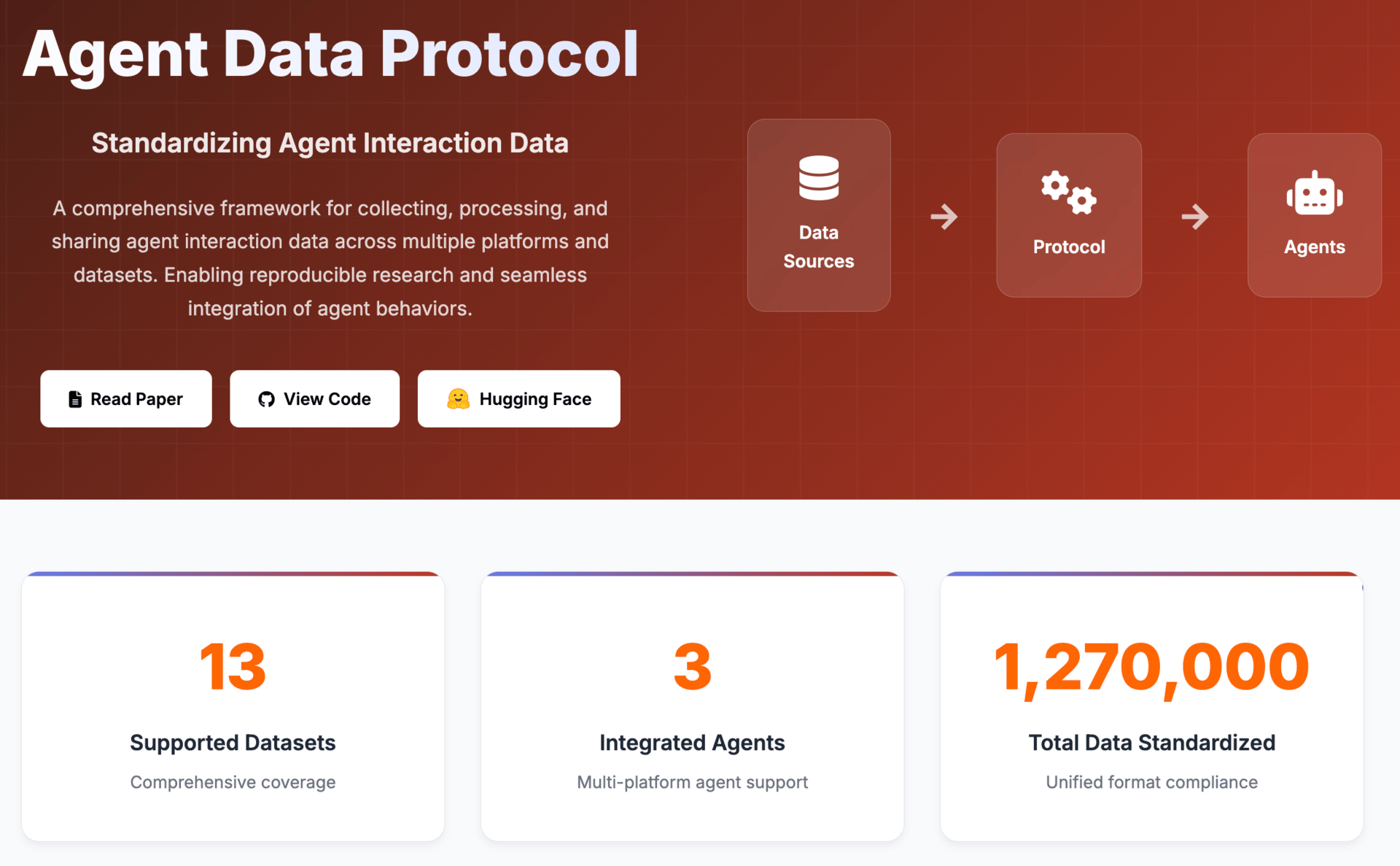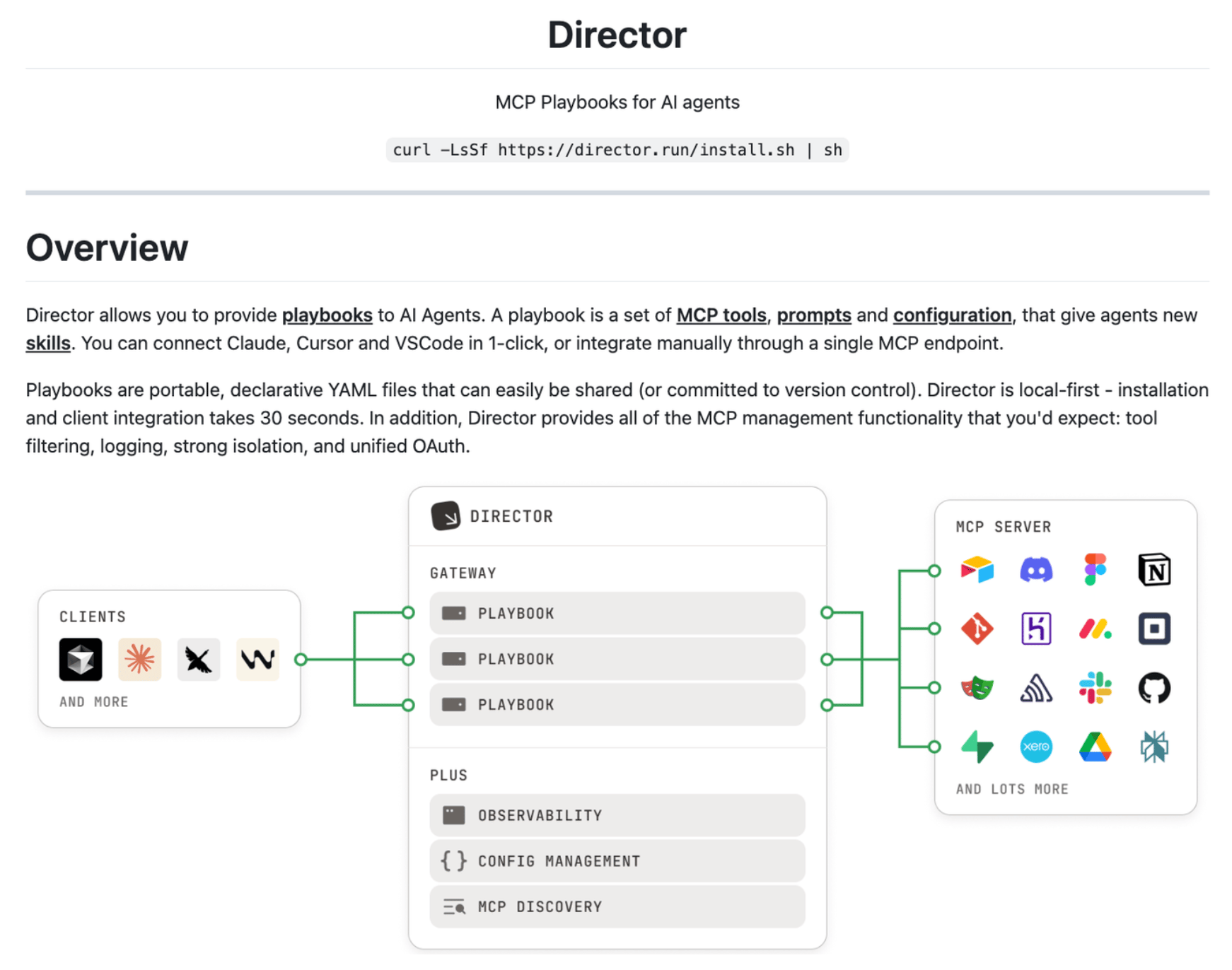- unwind ai
- Posts
- Agent Data Protocol for Training AI Agents
Agent Data Protocol for Training AI Agents
+ Claude Skills but for any MCP client, Google's AI marketing tool
Today’s top AI Highlights:
& so much more!
Read time: 3 mins
AI Tutorial
SEO optimization is both critical and time-consuming for teams building businesses. Manually auditing pages, researching competitors, and synthesizing actionable recommendations can eat up hours that you'd rather spend strategizing.
In this tutorial, we'll build an AI SEO Audit Team using Google's Agent Development Kit (ADK) and Gemini 2.5 Flash. This multi-agent system autonomously crawls any webpage, researches live search results, and delivers a polished optimization report through a clean web interface that traces every step of the workflow.
We share hands-on tutorials like this every week, designed to help you stay ahead in the world of AI. If you're serious about leveling up your AI skills and staying ahead of the curve, subscribe now and be the first to access our latest tutorials.
Latest Developments
Post-training AI agents is rare.
The problem? These agents need to take sequential actions and interact with environments iteratively. Unlike simple question-answer pairs, agent datasets require recording entire trajectories of behavior. And right now, this valuable data is scattered across incompatible formats, tools, and interfaces, making it nearly impossible to combine and use effectively.
Meet Agent Data Protocol (ADP), a lightweight standardization layer that acts as a universal translator for agent training data. Researchers from Carnegie Mellon, Ohio State, and others have unified 13 diverse agent datasets into a single format, creating the largest public agent training corpus with 1.3M trajectories.
The result? Models trained on ADP data show an average 20% performance boost over base models, achieving state-of-the-art results on agentic coding, browsing, and research tasks without any domain-specific tuning.
Key Highlights:
Universal data translation - ADP converts heterogeneous datasets into standardized Actions (API, code, message) and Observations (text, web), eliminating the need for per-dataset engineering when training agents.
Linear scaling instead of quadratic chaos - Without ADP, adapting 13 datasets to 100 agent frameworks requires ~489K lines of code. With ADP, it drops to ~12.6K lines through a hub-and-spoke conversion model.
Cross-task transfer that actually works - Training on mixed ADP data outperforms single-domain tuning on the target task itself. For example, SWE-Agent based on Qwen-2.5-14B hits 34% on SWE-Bench with ADP, close to Claude 3.5 Sonnet performance versus 2.0% with task-specific data alone.
Fully open-source and ready to use - Everything is available on GitHub, including the complete ADP schemas, converters for all 13 datasets, the 1.3M-trajectory training corpus, and scripts for three agent frameworks (OpenHands, SWE-Agent, AgentLab).
Attention spans are shrinking. Get proven tips on how to adapt:
Mobile attention is collapsing.
In 2018, mobile ads held attention for 3.4 seconds on average.
Today, it’s just 2.2 seconds.
That’s a 35% drop in only 7 years. And a massive challenge for marketers.
The State of Advertising 2025 shows what’s happening and how to adapt.
Get science-backed insights from a year of neuroscience research and top industry trends from 300+ marketing leaders. For free.
Claude Skills showed us that packaging reusable AI capabilities changes everything, but they only work inside Anthropic's ecosystem.
This open-source tool brings that same paradigm to the entire MCP universe through playbooks.
Director introduces MCP Playbooks - declarative YAML files that bundle MCP servers, custom prompts, and configuration into shareable modules that work identically across Cursor, Claude Code, VSCode, and any other MCP client.
Installation takes 30 seconds with zero cloud dependencies. Everything runs locally on your machine, and your playbooks are just flat files you can commit to version control and share with your team.
Key Highlights:
Task-specific - Director lets you create separate skills for each workflow (like "development," "marketing," or "customer-support"), where each skill aggregates only the MCP servers and tools relevant to that task.
Unified Auth - Instead of authenticating separately with GitHub, Notion, Slack, and other OAuth-enabled services in each AI agent, Director provides unified OAuth, where you authenticate once through the gateway and all connected agents.
Proxy Design - Director sits transparently between your agents and MCP servers as a reverse proxy, aggregating multiple MCP servers behind one unified endpoint while handling OAuth, tool filtering, and logging automatically.
Open source - Director is AGPL v3 licensed with a full monorepo including CLI, SDK, Docker images, Studio UI, and registry backend. Install Director now and start building playbooks in under a minute.
To understand how Director compares to Claude Skills, here's a quick breakdown:
Aspect | Director Playbooks | Claude Skills |
|---|---|---|
What it is | MCP gateway that aggregates external MCP servers into task-specific proxies | Native Claude feature that packages instructions + executable code into folders |
Portability | Platform-agnostic (same playbook, any MCP client) | Claude-specific but portable across Claude surfaces |
Building blocks | MCP tools + prompts + YAML config | Markdown instructions + Python scripts + resources |
Architecture | Reverse proxy/ middleware layer that sits between the agent and MCP servers | Progressive disclosure system baked into Claude's context loading |
Format | YAML playbooks | SKILL.md (Markdown with YAML frontmatter) |
Observability | Centralized JSON logging of all tool calls, prompts, and agent decisions | Limited visibility (chain of thought shows which skills load) |
Setup | Requires local gateway installation | No setup. Built into Claude, just enable in settings |
Quick Bites
Firecrawl v2.5 - The world's best Web Data API
The web scraping platform Firecrawl rolled out v2.5, which delivers the highest quality and most comprehensive web data API. There are two notable infrastructure upgrades: a custom-built browser stack that handles everything from PDFs to dynamic JavaScript apps, and a semantic index that now powers 40% of their API calls. The semantic index is especially interesting - it lets you pull web data "as of now" or retrieve a previous cached version, essentially giving you time-travel capabilities for web content. The team says they'll release the benchmark methodology publicly to back up their quality claims.
SOTA speech model for real-time voice AI agents
The Stanford SSM crew (Karan Goel, Albert Gu) closed $100M for their voice AI platform Cartesia, and dropped their next-gen model Sonic-3 with a very impressive sub-100ms model latency. They've built this on State Space Models that, unlike transformers, have more like human memory, remembering the "topic and vibe" of a conversation without reprocessing everything from scratch for each response. The model can generate laughter and convey a full range of human emotions with fine-grained control (do watch the demo!). They're so confident they'll beat your current voice AI setup that Karan Goel will donate $5K to charity if they can't.
OpenAI’s GPT-5-powered AI agent to find and fix security bugs
OpenAI just dropped Aardvark, an autonomous security agent, powered by GPT-5, that monitors your codebase for vulnerabilities. Unlike static analysis tools, it reasons through code behavior, validates findings by triggering exploits in sandboxes, and generates patches, complete with human review checkpoints via Codex. During its alpha run, it's already surfaced 10 CVE-worthy bugs in open-source projects and achieved 92% recall on benchmark repos. OpenAI is inviting select partners to join the Aardvark private beta.
Free Google subscription worth ₹35,100 for Jio users
Google and Jio have teamed up to give young Indian 5G users (aged 18-25 years) an 18-month free run with Gemini's pro features, including 2TB cloud storage and access to AI models like Veo 3.1. The catch is you need to have Jio’s Unlimited 5G plan (₹349 or above per month) during the offer period to claim this, so factor that into your math before jumping in.
The first AI patent research agent by Perplexity
Perplexity has launched Perplexity Patents, a free AI research agent that lets you search global patent databases using simple language instead of the usual keyword gymnastics. The system pulls from official patent databases worldwide, plus academic papers and software repositories to catch prior art wherever it lives. It maintains conversational context across follow-up questions, so you can drill down without restarting your search each time. Currently in beta, with Pro subscribers getting higher usage quotas when it exits beta.
Tools of the Trade
Pokee AI - Forget n8n and OpenAI Agent Builder. This tool lets you build agentic workflows that connect to 1000s of tools like Gmail, Slack, and YouTube to complete multi-step tasks. Deploy with an API that is as easy to use as ChatGPT. All auth handled.
Propolis - Deploys a swarm of browser agents to test web applications by simulating real user behavior across your site. The agents explore your app collaboratively, identify bugs and friction points, then generate end-to-end tests that can run in your CI pipeline.
0github.com - A pull request viewer that color-codes every diff line/token by how much human attention it probably needs. Unlike PR-review bots, it flags not just by “is it a bug?” but by “is it worth a second look?” To try it, replace github.com with 0github.com in any GitHub pull request URL.
Pomelli - An experimental AI marketing tool that generates scalable, on-brand content to connect with your audience faster. Just enter your website, and Pomelli will understand your unique business identity to build effective campaigns tailored to your brand.
Awesome LLM Apps - A curated collection of LLM apps with RAG, AI Agents, multi-agent teams, MCP, voice agents, and more. The apps use models from OpenAI, Anthropic, Google, and open-source models like DeepSeek, Qwen, and Llama that you can run locally on your computer.
(Now accepting GitHub sponsorships)
Hot Takes
Windsurf >> Cursor (only since the acq).
The hottest new programming language is Markdown
~ Daniel San
That’s all for today! See you tomorrow with more such AI-filled content.
Don’t forget to share this newsletter on your social channels and tag Unwind AI to support us!
PS: We curate this AI newsletter every day for FREE, your support is what keeps us going. If you find value in what you read, share it with at least one, two (or 20) of your friends 😉






Reply